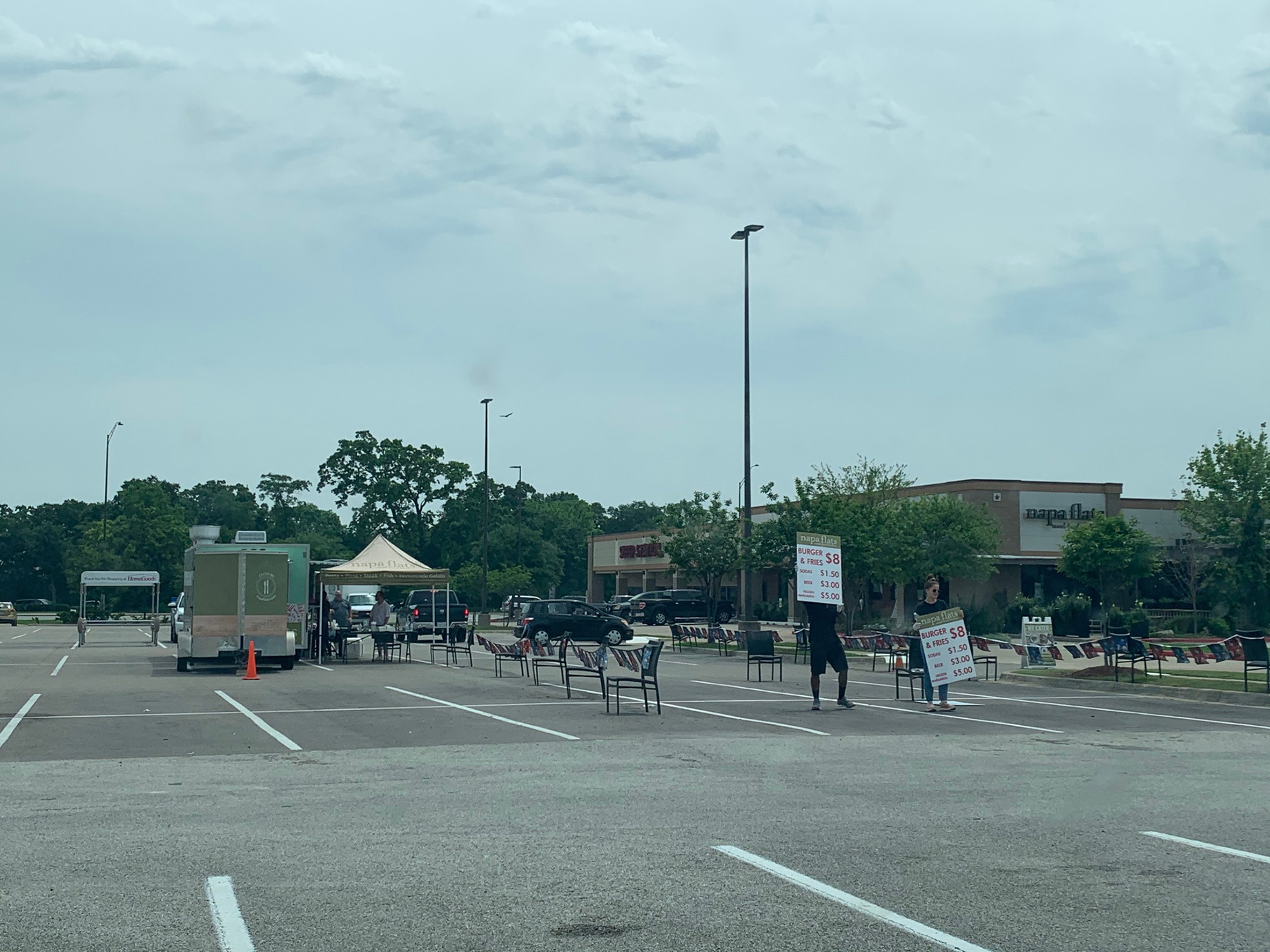The COVID-19 pandemic has taken an especially hard toll on small retailers, which tend to have limited access to capital and minimal cash reserves. A March 30th survey by the National Federation of Independent Business found that the COVID-19 pandemic has negatively impacted 92 percent of small employers. About half the employers who participated in the survey can survive for no more than two months under current conditions.
Shopping center owners aren’t standing idly by in the face of this existential threat, and it’s not hard to understand why. Nearly 70 percent of shopping center tenants are small businesses that employ fewer than 10 people, according to ICSC. These small businesses play an outsize role in many shopping centers by helping distinguish one property from the next. “Small businesses are the heart and soul of our properties. They build long-lasting emotional connections with communities,” said Trademark Property Co. CEO Terry Montesi.
Many shopping center landlords are providing small-business tenants with some type of short-term rent relief, typically on a case-by-case basis, while steering them to resources designed to help them weather the economic storm and prepare for what’s expected to be a gradual return to normalcy.
“Small businesses are the heart and soul of our properties. They build long-lasting emotional connections with communities”
1. Kimco helps small-business tenants find emergency funding
In early April, Kimco Realty launched a program to help its small-business tenants identify and apply for suitable federal and state loan programs, including the federal Paycheck Protection Program (PPP). PPP has seen huge demand, as well as a rocky rollout. By mid-April, it had already exhausted an initial $349 billion in funding, although Shake Shack has announced it will return its $10 million PPP loan. Also, the Senate passed a bill on Tuesday for another stimulus deal that would be worth more than $484 billion, including more than $300 billion for PPP. The House is expected to vote on the bill on Thursday, and President Donald Trump has expressed support.
Kimco’s Tenant Assistance Program provides its small-businesses tenants free legal help in identifying suitable loan programs and potential lenders and preparing and in submitting applications. Kimco has retained leading law firms to work directly with its tenants and is footing the bill for those services. TAP is now available to Kimco tenants in more than 20 states, and the firm continues to expand the program’s reach.
“Small-shop tenants give each individual asset a level of secret sauce, a local component that’s not the same in every single shopping center. You want that unique ingredient that differentiates one center from the next,” said Kimco CEO Conor Flynn.
“Small-shop tenants give each individual asset a level of secret sauce, a local component that’s not the same in every single shopping center.”
2. Kite lends directly to small-business tenants
On April 20, shopping center REIT Kite launched its own small business loan program to provide expedited, low-interest loans to select tenants to help them pay employees and vendors and cover other types of expenses. The loans are intended to cover as much as three months’ worth of operating expenses, and Kite will award them based on criteria like credit history, length of tenancy and financial performance. Kite will provide as much as $5 million in total assistance under the program.
“We have many small businesses in our shopping centers who have made every effort to make it through the crisis but who need additional funds to cover expenses until they are fully able to reopen,” said chairman and CEO John Kite.
“We have many small businesses in our shopping centers who have made every effort to make it through the crisis but who need additional funds to cover expenses until they are fully able to reopen”
3. Washington Prime helps with lease renegotiations
Washington Prime Group has joined with Chicago’s Institute for Justice Clinic on Entrepreneurship and University of Chicago faculty to help small businesses streamline the lease-negotiation process. The Open for Small Business Initiative has created a standardized, easy-to-use, lease-modification template that, among other things, sets out terms for the deferral of rent in April and May. The template is available to all small businesses, not just Washington Prime tenants. The initiative also is hosting free webinars on accessing Small Business Administration loans, as well as such topics as leadership, accounting and advertising. Some 300 business owners participated in the first such webinar.
“While the impact of the coronavirus pandemic has been dramatic, to say the least, there will be a return to normalcy,” said Washington Prime CEO Louis Conforti, “and when things settle down, we all better make sure small-business owners are indeed ready to open for business.”
“When things settle down, we all better make sure small-business owners are indeed ready to open for business”
4. Brixmor helps small-business tenants that are still operating
To help essential businesses that remain open, Brixmor has worked to ensure that its centers remain safe and well-lit and thus welcoming to shoppers picking up groceries, takeout meals and other essentials. The company has stayed abreast of tenants’ operating plans, including changes to store hours, and is reassessing the security needs of each property.
Brixmor, which owns and operates more than 400 open-air centers in 34 states, is also using its social media platforms, onsite signage and roadside banners to promote tenants that remain open.

Brixmor dedicated parking lots space at its Central Station shopping center in College Station, Texas, to enable inline restaurant Napa Flats Wood-Fired Kitchen to run a food truck with a drive-thru
In addition, Brixmor has tried to make it easier for shoppers to get in and out of its properties quickly and with minimal human contact by setting aside space in parking lots for curbside pickup and drive-thru lanes. At the Central Station shopping center in College Station, Texas, for instance, Brixmor carved out parking lot space for a drive-thru for Napa Flats Wood-Fired Kitchen, an inline tenant that’s now operating a food truck in the lot.
“We’re leaning on experiences we’ve had managing properties in natural-disaster-type events,” explained Brian Finnegan, Brixmor chief revenue officer. “Our team did a tremendous job of managing through the impacts of Hurricane Harvey and Hurricane Michael. Being there to listen to tenants was important, as was understanding that it might take them a bit of time to return to some sense of normalcy.”
“Small business is the lifeblood of our economy and certainly the lifeblood of our centers. They bring a sought-after uniqueness and entrepreneurial spirit to our business and our centers”
5. Casto cross-markets its small-business tenants to its apartment tenants
Casto owns a 26 million-square-foot portfolio of shopping centers and office buildings, as well as more than 4,700 apartment units. Via email blasts and other tools, Casto has marketed retail tenants that remain open, including those offering delivery services and promotions, to residents of its nearby apartment communities.
“Small business is the lifeblood of our economy and certainly the lifeblood of our centers,” said Jason Freeman, vice president of development and finance. “They bring a sought-after uniqueness and entrepreneurial spirit to our business and our centers.”
6. PREIT helps small-business tenants with e-commerce
PREIT has launched a Shop Local page to point shoppers to its small-business tenants’ e-commerce websites. “Our local businesses are among the enterprises hardest hit by this pandemic,” said Joseph Coradino, chairman and CEO. “Without robust digital marketing budgets, they are at a disadvantage to their national counterparts. The retail ecosystem is critical to economic recovery, and we wanted to be sure we took steps to support those most in need, including putting our marketing power behind our tenants.”
RELATED: Washington Prime launches online marketplace for tenants in closed centers
RELATED: Sonae Sierra offers tenants free e-commerce channel
“Our local businesses are among the enterprises hardest hit by this pandemic. Without robust digital marketing budgets, they are at a disadvantage to their national counterparts”
7. Trademark motivates tenants to focus on next steps
Montesi says Trademark is trying to keep its small-business tenants focused on the bigger picture, encouraging them to think through their grand-reopening plans, which likely won’t entail an immediate return to business as usual. Retailers and restaurants, for instance, may need to encourage proper social distancing.
In recent weeks, Trademark has been trying to capture “mind share and heart share” through charitable endeavors and messaging. Near its mixed-use Galleria Dallas, the company has taken out a billboard that reads “Our heroes wear scrubs.”

Trademark Property Co. took out a billboard near its Galleria Dallas in part to engage with and inspire tenants
Such efforts are intended in part to inspire Trademark’s tenants, many of which are still “shell-shocked,” said Montesi. “We’re engaging them and asking: ‘What will you do to make sure your customers know you’re open, to get your business back, maybe even to gain market share because some of your competitors may not do as well when it comes to preparing for reopening?’”
By Anna Robaton
Contributor, Commerce + Communities Today


